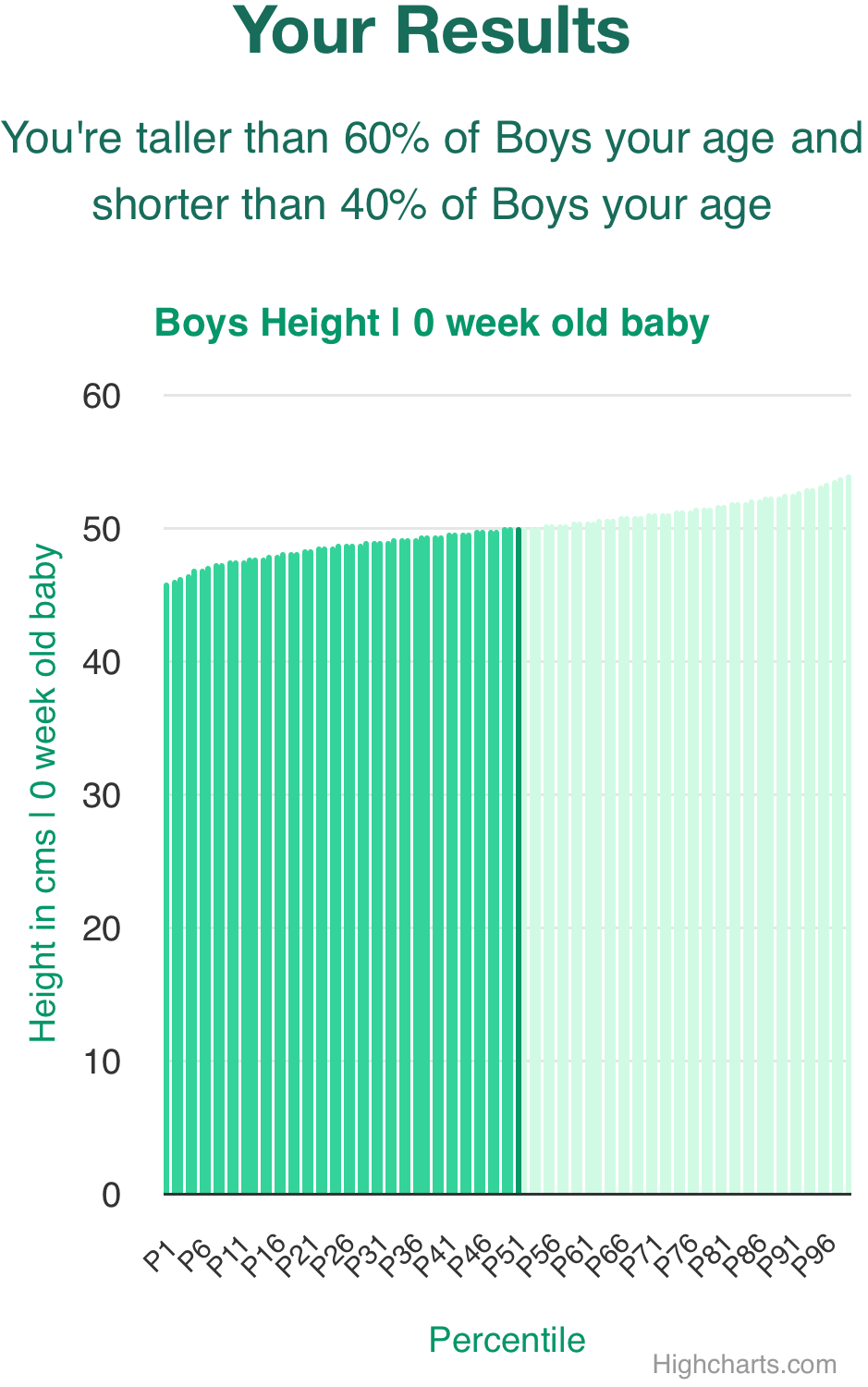Boys Height chart in cms for babies 0 week old baby

General Summary: 0 week old baby boys height
In most cases, height measurements for 0 week old baby boys will be in the range between 46 and 53 cms. The average height for 0 week old baby boys is 50 cms, according to the CDC and anonymized data from users.
All Results
Enter your height measurements above to see how they compare
So far, we have recorded [0] height measurements for 0-week-old-baby boys on LifeMeasure!
(chart updates daily)
See more ages